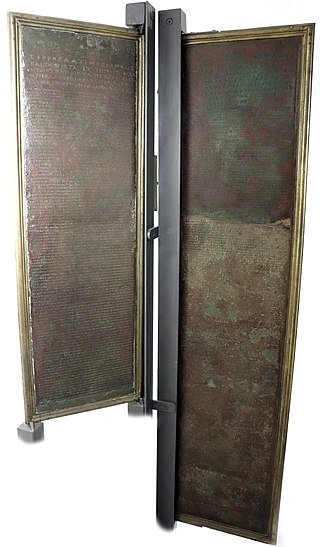Year 353 BC was a year of the pre-Julian Roman calendar. At the time, it was known as the Year of the Consulship of Peticus and Poplicola. The denomination 353 BC for this year has been used since the early medieval period, when the Anno Domini calendar era became the prevalent method in Europe for naming years.

The Battle of Cunaxa was fought in the late summer of 401 BC between the Persian king Artaxerxes II and his brother Cyrus the Younger for control of the Achaemenid throne. The great battle of the revolt of Cyrus took place 70 km north of Babylon, at Cunaxa, on the left bank of the Euphrates. The main source is Xenophon, a Greek soldier who participated in the fighting.

Heraclea Pontica, known in Byzantine and later times as Pontoheraclea, was an ancient city on the coast of Bithynia in Asia Minor, at the mouth of the river Lycus. It was founded by the Greek city-state of Megara in approximately 560–558 BC and was named after Heracles who the Greeks believed entered the underworld at a cave on the adjoining Archerusian promontory. The site is now the location of the modern city Karadeniz Ereğli, in the Zonguldak Province of Turkey.
Satyrus or Satyros may refer to:
The Peripatetic school was a philosophical school founded in 335 BC by Aristotle in the Lyceum in Ancient Athens. It was an informal institution whose members conducted philosophical and scientific inquiries. After the middle of the 3rd century BC, the school fell into decline, and it was not until the Roman Empire that there was a revival.
Apollonius is a masculine given name which may refer to:
Dromichaetes was king of the Getae on both sides of the lower Danube around 300 BC.

Timotheus is a masculine male name. It is a latinized version of the Greek name Τιμόθεος (Timόtheos) meaning "one who honours God", from τιμή "honour" and θεός "god". The English version Timothy is a common name in several countries.
Clearchus was a citizen of Heraclea on the Euxine who was recalled from exile by the oligarchy of that city to aid them in quelling the growing discontent and demands of the people. According to Justin, Clearchus reached an agreement with Mithridates of Cius to betray the city to him on the condition that Clearchus would hold the city for Mithridates as governor. But, Clearchus then came to the conclusion that he could make himself master of the city without the aid of Mithridates. So he not only broke his agreement with the Mithridates, but also captured him and compelled him to pay a large sum for his release.
Chion was the son of Matris, a noble citizen of Heraclea, city on the coast of Bithynia in Asia Minor, and was a disciple of Plato. Together with Leon, Euxenon, and other young men from noble families, he helped assassinate Clearchus, the tyrant of Heraclea. Most of the conspirators were killed by the tyrant's body guards, others were put to death later, after being tortured. Rule of the city passed to Clearchus' brother, Satyrus, who is generally considered to have been a worse tyrant than Clearchus.
Memnon of Heraclea was a Greek historical writer, probably a native of Heraclea Pontica. He described the history of that city in a large work, known only through the Excerpta of Photius, and describing especially the various tyrants who had at times ruled Heraclea.
Clearchus of Soli was a Greek philosopher of the 4th–3rd century BCE, belonging to Aristotle's Peripatetic school. He was born in Soli in Cyprus.

Heraclea, also Heracleia or Herakleia, was an ancient city. It was situated on the Gulf of Taranto between the rivers Aciris and Siris. The ruins of the city are located in the modern comune of Policoro in the Province of Matera, Basilicata, Italy.
Asclepiodotus may refer to:
Astacus is an ancient city in Bithynia; it was also called Olbia. Its site is located near the modern Baş İskele.
Clearchus was a Roman politician who was consul of the Roman Empire in 384 AD.

The Heraclean Tablets are bronze tablets found a short distance from the site of Heraclea Lucania, in the direction of Metapontum. They are significant for the study of Roman Law.
The Bosporan–Heracleote War was a long and enduring conflict between the states of Heraclea Pontica and the Bosporan Kingdom. It lasted decades, but ended after the Bosporans finally conquered the city-state of Theodosia in around 360 BCE.




